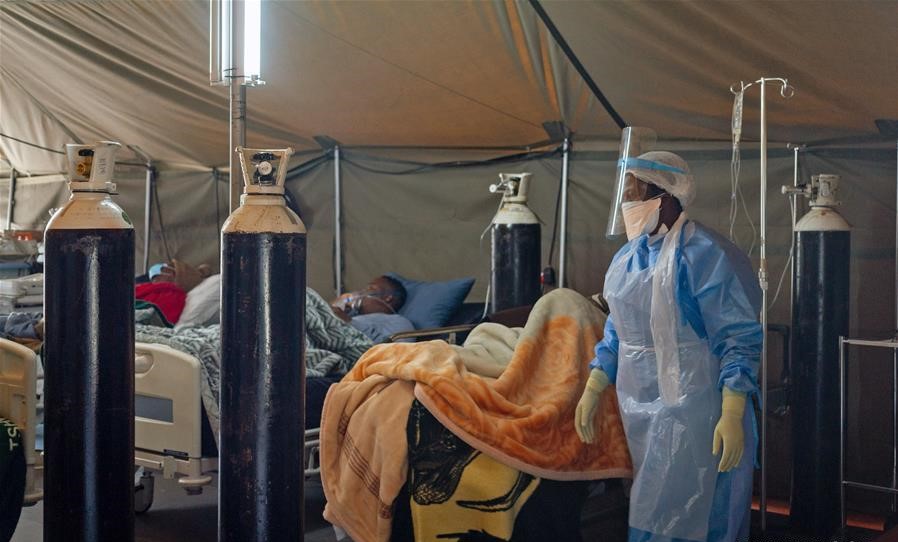
South Africa’s Health minister urges caution amid declining COVID-19 cases

The numbers of confirmed coronavirus cases in South Africa are reducing but the country is not yet out of danger yet, the nation’s Minister of Health Dr. Zweli Mkhize said.
South Africa remains Africa’s worst-affected country but, in July and August, the country had the fifth highest number of coronavirus cases globally behind the United States, India, Brazil and Russia.
The South American nations of Peru (689,977) and Colombia (666,521) are the two countries which recently pushed South Africa lower in the rankings, according to data from the Johns Hopkins University.
“…the numbers are reducing. We are not over the worst yet, we are worrying about the resurgence. Globally we are now at number 7, this tells us 2 things – 1 the numbers are declining in SA, 2 Globally the numbers are still increasing,” Mkhize said.
Mkhize pointed out that health officials had refined the testing strategy during the pandemic’s peak to testing individuals with symptoms, co-morbidities, contacts, those admitted in hospital among others. He added that the numbers of such individuals had decreased.
He further noted that hospital admissions and the number of people on ventilators had also decreased.
Despite this positive assessment, Mkhize cautioned that South Africa was not yet primed for a full reopening.
“We are not ready to open everything immediately. We are moving in that direction, the economy does need to be opened, however we will ease into the decrease in restrictions,” Mkhize said.
Mkhize insisted that all South Africans needed to adhere to the existing containment measures in order to prevent a second wave.
“We mustn’t try to predict that there will be no second wave, instead we should behave in a way to prevent a second wave from occurring.”
“For about 3 weeks now we’ve been on a steady decline. We’ve seen other countries where they’ve had almost no cases and then there has been a second wave.”
South Africa implemented one of the fastest and strictest responses to the COVID-19 pandemic in March. It closed its borders and imposed a nationwide lockdown before it announced its first death from COVID-19.
However, the two-month lockdown battered Africa’s most industrialised economy, particularly the country’s poorest, prompting the government to partially lift it at the start of June in a bid to revive the economy.
Last month, President Cyril Ramaphosa announced a sweeping removal of lockdown restrictions on the economy saying that all indications were that South Africa had reached the peak of COVID-19 infections.
This included an end to the bans on alcohol and tobacco, allowing restaurants and taverns to return to normal business, subject to strict hygiene regulations, and an end to restrictions on inter-provincial travel.
As of September 6, South Africa recorded 638,517 confirmed COVID-19 cases with the total number of deaths at 14,889 while the total number of recoveries stood at 563,891.






